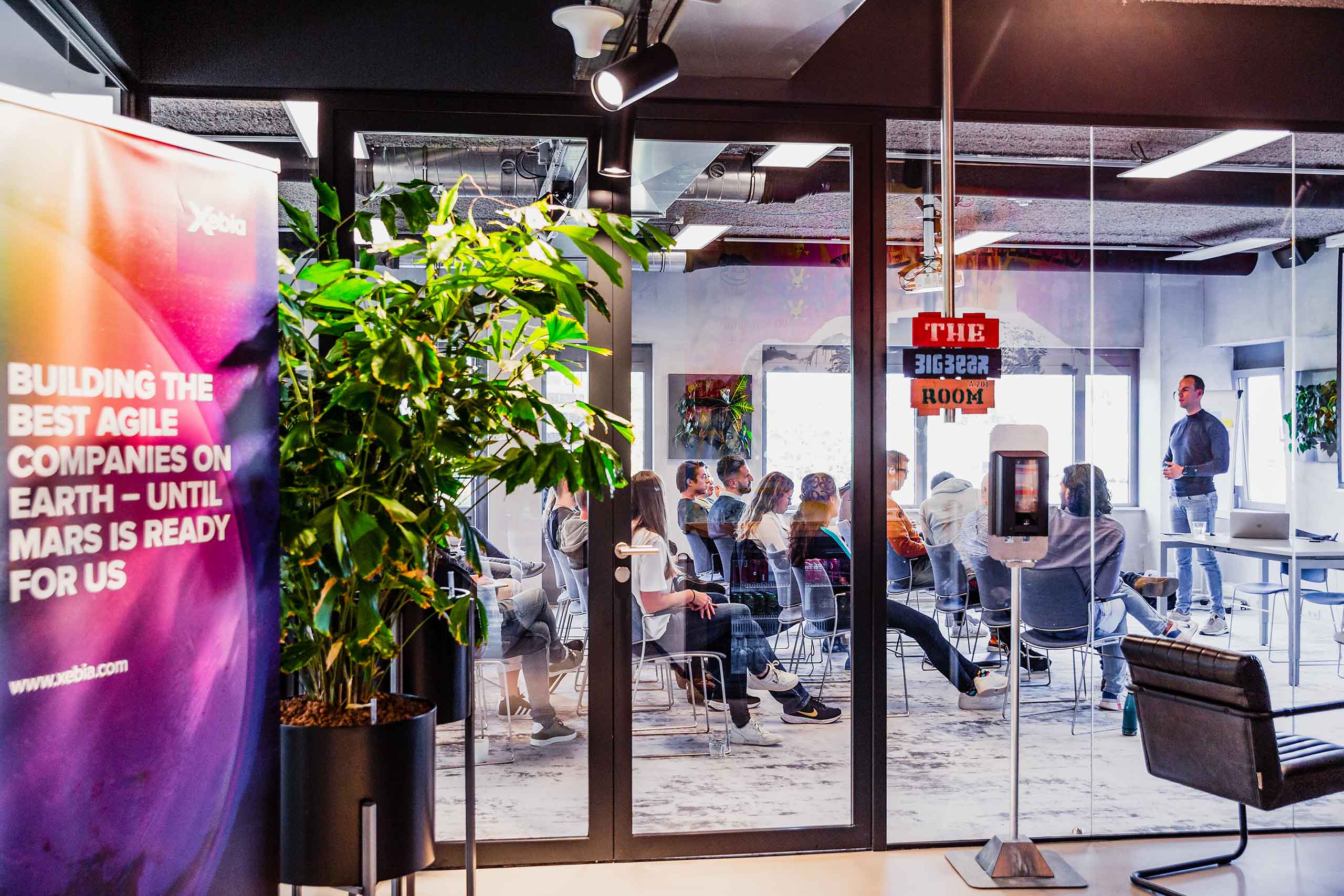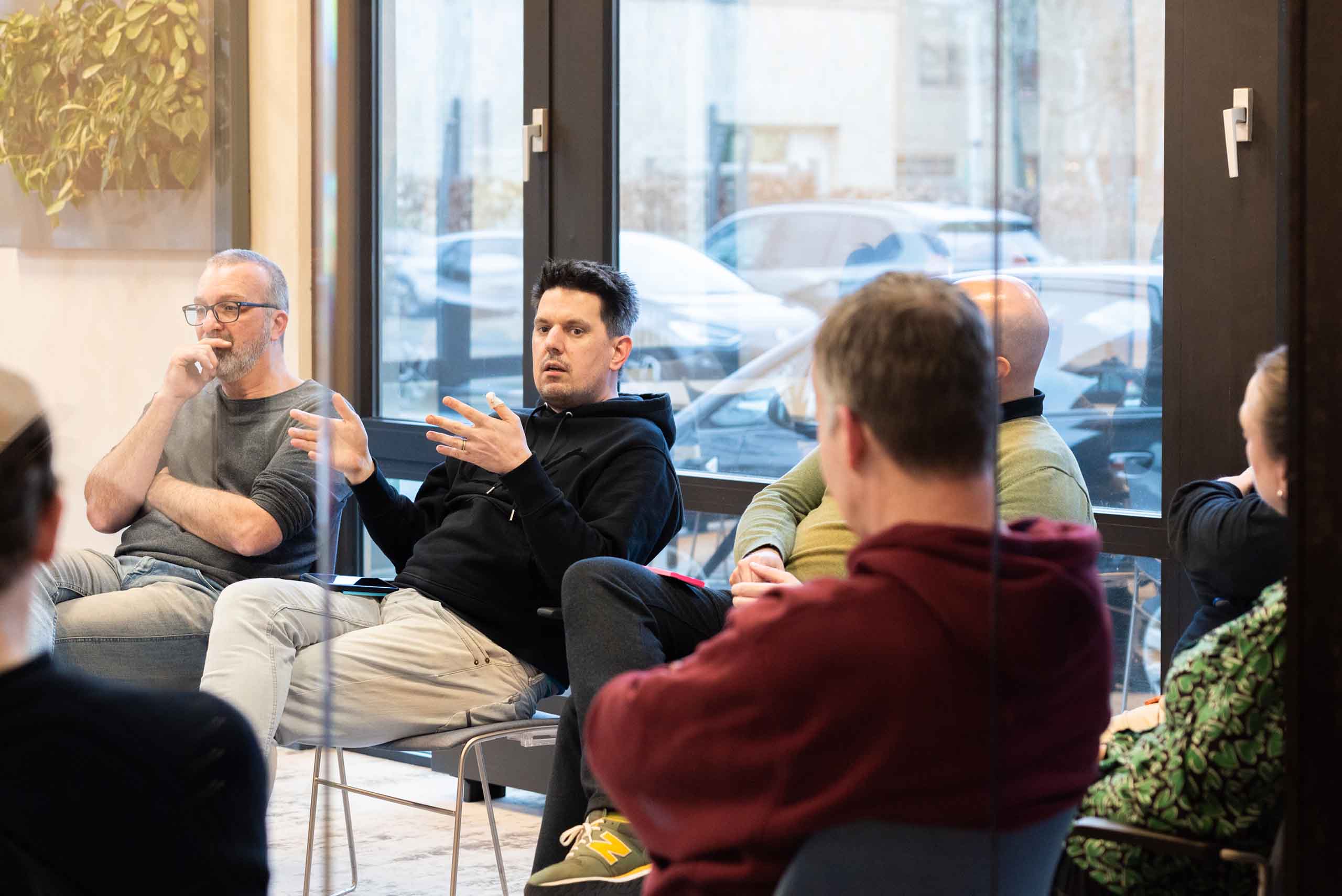Data Engineering on Google Cloud Platform
13 mei, 2024 – Hilversum, The Netherlands
Klaar om een professionele Data Engineer op Google Cloud Platform (GCP) te worden? Ontwerp dataverwerkingssystemen, bouw end-to-end data pipelines, analyseer data en voer machine learning uit, allemaal geleerd binnen vier dagen.
Ga met ons mee op een meeslepende reis door de datatechnische mogelijkheden van Google Cloud. Let op dat deze cursus deel uitmaakt van Google’s Data Engineering-traject, dat leidt tot het certificaat Professional Data Engineer.
Wil je jouw team(s) of organisatie trainen?
Max helpt je graag verder met trainingsoplossingen op maat.
Neem contact opDuur
4 days
Tijd
09:00 – 17:00
Taal
English
Lunch
Included
Certificering
No
Level
Professional
Wat leer je?
Ben jij een Developer die verantwoordelijk is voor het beheren van Big Data transformaties? Wil je een professional worden op het Google Cloud Platform? Ga mee op deze uitgebreide vierdaagse reis vol interactieve presentaties, demonstraties uit de praktijk en praktische hands-on labs die u voorbereiden op het ontwerpen en bouwen van gegevensverwerkingssystemen op het Google Cloud Platform. Bouw complete pipelines, analyseer gegevens en verdiep je in machine learning-concepten; deze training voorziet je van echte vaardigheden om te slagen in het dynamische veld van data engineering.
Belangrijkste leerdoelen
- Het ontwerpen van robuuste dataverwerkingssystemen.
- End-to-end pijplijnen bouwen.
- Analyseren en interpreteren van complexe datasets.
- Krachtige oplossingen voor machinaal leren uitvoeren.
- Google Cloud Dataproc onder de knie krijgen.
- Werken met serverloze data-analyse.
Programma
- Overzicht Google Cloud Dataproc: Maak gebruik van de functies van Dataproc voor optimaal clusterbeheer en schaling.
- Dataproc jobs uitvoeren: Voer Pig, Hive en meer uit met naadloze scheiding van opslag en verwerking.
- Dataproc integreren met Google Cloud Platform: Clusters aanpassen met initialisatieacties en BigQuery naadloos integreren.
- Ongestructureerde gegevens inzichtelijk maken met de Machine Learning-API’s van Google: Gebruik de ML-API’s van Google om inzichten af te leiden uit ongestructureerde gegevens.
- Serverloze gegevensanalyse met BigQuery: Duik in de mogelijkheden van BigQuery voor robuuste gegevensanalyse.
- Serverloze, automatisch schaalbare datapijplijnen met Dataflow: Maak kennis met Dataflow voor schaalbare datapijplijnen en -verwerking.
- Aan de slag met machine learning: Verwerf fundamentele inzichten in machine learning.
- ML-modellen bouwen met Tensorflow: Robuuste modellen voor machinaal leren maken met TensorFlow.
- ML-modellen schalen met CloudML: Schaal uw modellen voor machinaal leren met Google Cloud ML.
- Functietechniek: Leer hoe u functies kunt ontwikkelen om de prestaties van het model te verbeteren.
- Architectuur van streaming analytics-pijplijnen: Ontdek de architectuur achter effectieve streaming analytics.
- Invoer van variabele volumes: Ontdek Cloud Pub/Sub voor het beheer van variabele gegevensvolumes.
- Het implementeren van streaming pijplijnen: Leer om te gaan met late gegevens en effectieve pijplijnen te ontwerpen.
- Streaming analyses en dashboards: Zet streaming data om in bruikbare inzichten en visualisaties.
- Hoge doorvoer en lage latency met Bigtable: Ontgrendel het potentieel van Cloud Spanner en Bigtable voor gegevensverwerking met hoge doorvoer.
Voor wie is het?
Deze training is ideaal voor ervaren developers die zich bezighouden met gegevenstransformaties, pipeline-ontwerp, machine-learningmodellen en gegevensanalyse. Doe mee als je graag een Professional Data Engineer op GCP wilt worden.
Vereisten
Omdat dit een gevorderde cursus is, moeten deelnemers de Google Cloud Fundamentals: Big Data & Machine Learning training of vaardig zijn met standaard querytaalvaardigheden in SQL, datamodellering, extraheren, transformeren en laden van activiteiten, het ontwikkelen van toepassingen met behulp van een programmeertaal zoals Python, en Machine Learning en/of statistiek.
Waarom zou je deze training volgen?
Expertise opdoen in GCP Data Engineering. End-to-end data-oplossingen ontwikkelen op Google Cloud Platform
Leer van industrie-experts Geleid door Cloud goeroes van Xebia Cloud, een Google Cloud Authorized Training Partner
Bereid je voor op certificering: Bereid je voor op Google’s Professional Data Engineer-examen
Examen en certificering
Hoewel deze training geen certificaat biedt, is deze ontworpen om je voor te bereiden op het Google-examen Professional Data Engineer en de certificering, terwijl je je vaardigheden oppoetst. Google raadt aan dat je meer dan 3 jaar ervaring hebt in de industrie, inclusief meer dan 1 jaar in het ontwerpen en beheren van oplossingen met behulp van GCP, voordat je het examen aflegt. Het examen is niet inbegrepen in deze training.

Wat moet ik nog meer weten?
Nadat je je hebt ingeschreven voor deze training, ontvang je een bevestigingsmail met praktische informatie. Een week voor de training delen we relevante literatuur als je je wilt voorbereiden.
Tot ziens!
Training informatie
Literatuur en lunch zijn bij de prijs inbegrepen.
Reis- en verblijfkosten zijn niet inbegrepen.
Je moet je laptop meenemen (met beheerdersrechten) voor een naadloze, praktijkgerichte ervaring.
Deze Cloud-training wordt u aangeboden door Xebia Cloud. Xebia Cloud is een Google Cloud Authorized Training Partner en uw trainer is een echte Cloud-goeroe die graag zijn ervaringen deelt om u te helpen het meeste uit GCP te halen.







